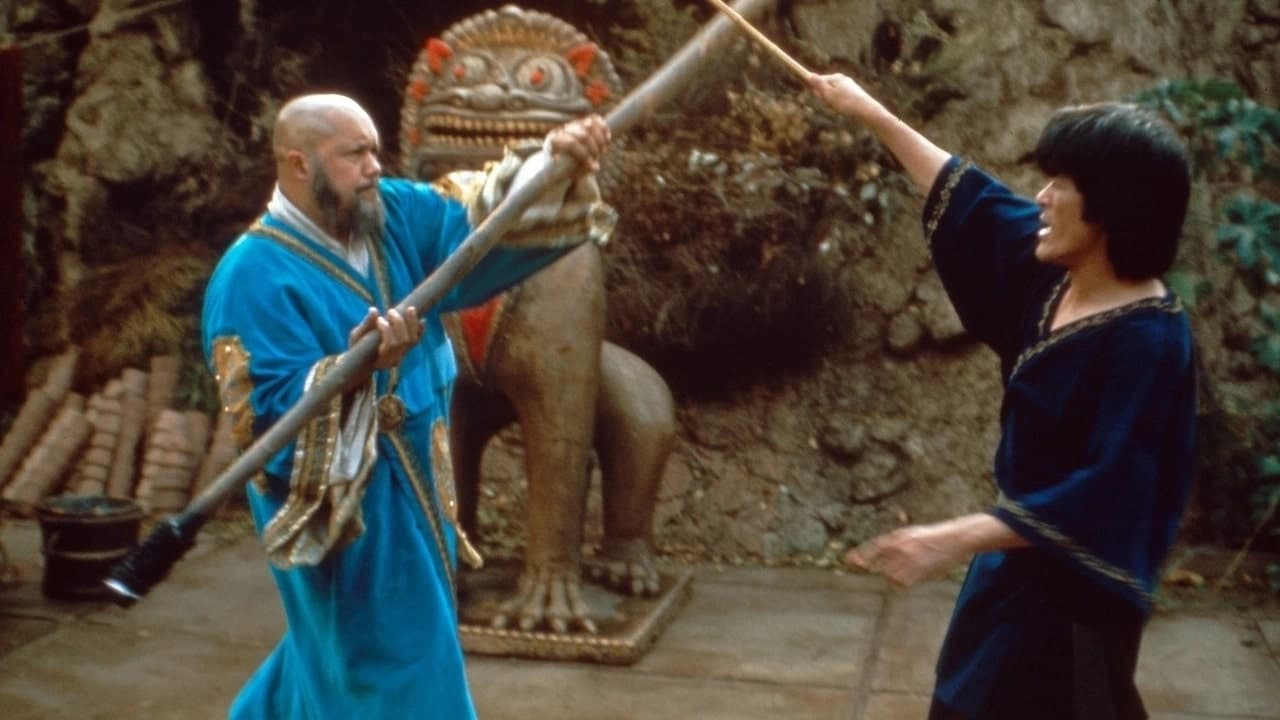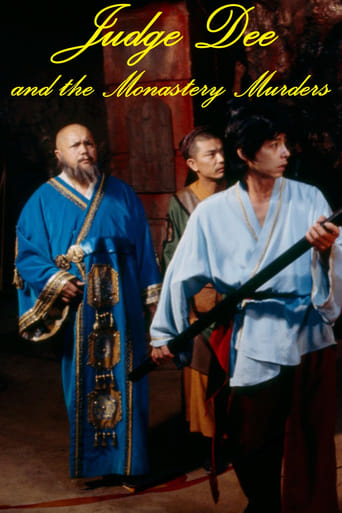

Not only have I read all 16 of van Gulik's Judge Dee books, but also his translation of "Dee Goong An", which was the Chinese literary source for the Judge, and also a number of van Gulik's other works and source materials (including a very tedious novel in a contemporary setting). Khigh Dhiegh made an acceptable Judge, but I felt that Mako as Tao Gan was a bad piece of casting - he played the character as too fawning and not quite clever enough. Motai (Mo Mo-te in the book) was a bit overplayed. Probably the best bit of casting was Keye Luke as the arrogant Sun Ming.On the other hand, it was refreshing to see and not a complete disappointment. I have a fairly decent tape I made from a rebroadcast of the movie in the mid-'80s with fairly good picture and sound quality.The A&E Nero Wolfe series set a gold standard for faithfulness to sources that the '70s just weren't up to. I can only hope that someone will turn up to be for Robert H. van Gulik what Timothy Hutton was to Rex Stout.
... View MoreThere have been a number of fine films made for television over the decades since public-network TV was rushed into being. "Judge Dee and the Monastery Murders" is one of them, on just about every count. It has that rare quality, style, a literate script by Nicholas Meyer, based on Robert Van Gulik's novel, and interesting performances, lighting and sound. Leonard Rosenman supplied above-average music; and director Jeremy Kagan kept the action going non- stop even though the structure of the investigational mystery required him to deal with many scenes of questioning, discovery and reaction. The story takes place in the 7th Century. On his way to a provincial capital, Judge Dee and his three wives are forced by a heavy rainstorm to ask for shelter at a rural Taoist monastery. The Judge, China's greatest detective, discovers that the late abbot of the institution, very recently deceased, had been murdered, that he had not died of natural causes. The monastery is host to a group of guests of various sorts, as was usual in those days; and many secrets, lies, evasions and suspicions have to be dealt with before the Judge solves not only one murder but several more attempts and deaths. This rare and intelligent production starred Khigh Dhiegh as the Judge, Mako as Tao Gan, his assistant, Miiko Taka as his First Wife, Keye Luke as Lord Sun Ming, and such luminaries of the Oriental acting fraternity as Irene Tsu, Soon-tek Oh, Frances Fong, James Hong, Beverky Kushida, Yuki Shimoda and others appearing in the talented cast. Do not miss a chance to see Judge Dee at work in this popular classic; the East's Nero Wolfe is as fascinating as Charlie Chan and as cool as Inspector Morse. It is to be regretted that no other films about this fabulous character of Van Gulik's have been made to date. This example of the Judge's work was extremely well- done for a television achievement. Jan Scott's production design and the acting alone rendered it worth worth seeking, and viewing more than once.
... View MoreYour reaction to this movie will probably depend on how many Judge Dee novels you've read, and whether you really liked them or not. I've read every single one of them, several times each, and love them. This TV movie does them no justice at all. In the movie, Judge Dee doesn't look or act like Judge Dee. His lieutenant, Tao Gan, doesn't look or act like Tao Gan. The movie is slow and plodding, the acting is mundane, the pace is tedious; the actors speak about one word a minute, maybe to give the illusion of a foreign language. I got none of the flavor of ancient China which is so delightful in the novels. The movie's Judge Dee comes across as a fat, bald, slow-moving, slow-thinking guy -- in the novels he's big, tough, an accomplished boxer, and extremely smart and perceptive. That said, the actual plot of the movie is mostly true to the novel. But it could have been so much better. If you liked this movie even a tiny bit, do yourself a favor and read one of the wonderful Judge Dee novels by Robert van Gulik.
... View MoreAll the signs were there that this would have been a series, and I am sure I would have watched and enjoyed it, just as I watched and enjoyed the "Ellery Queen" series of about the same vintage, and the later (and better) "Nero Wolfe" on A&E. This one shares their format of an interesting setting used to lay out the facts of a classical-style mystery story, and you get the chance to solve it yourself. But, for some sad reason, even though mysteries are an enduringly popular genre in print, this type of TV just never quite catches on.The decision to set the story in old China was clever, but maybe the audience in 1974 expected a kung fu movie (which, much as I like that genre too, I was glad to see they had the courage to almost completely set aside in favor of another type of story). No idea where you might get to see this one today, but if it shows up on late-night TV, set your VCR.
... View More